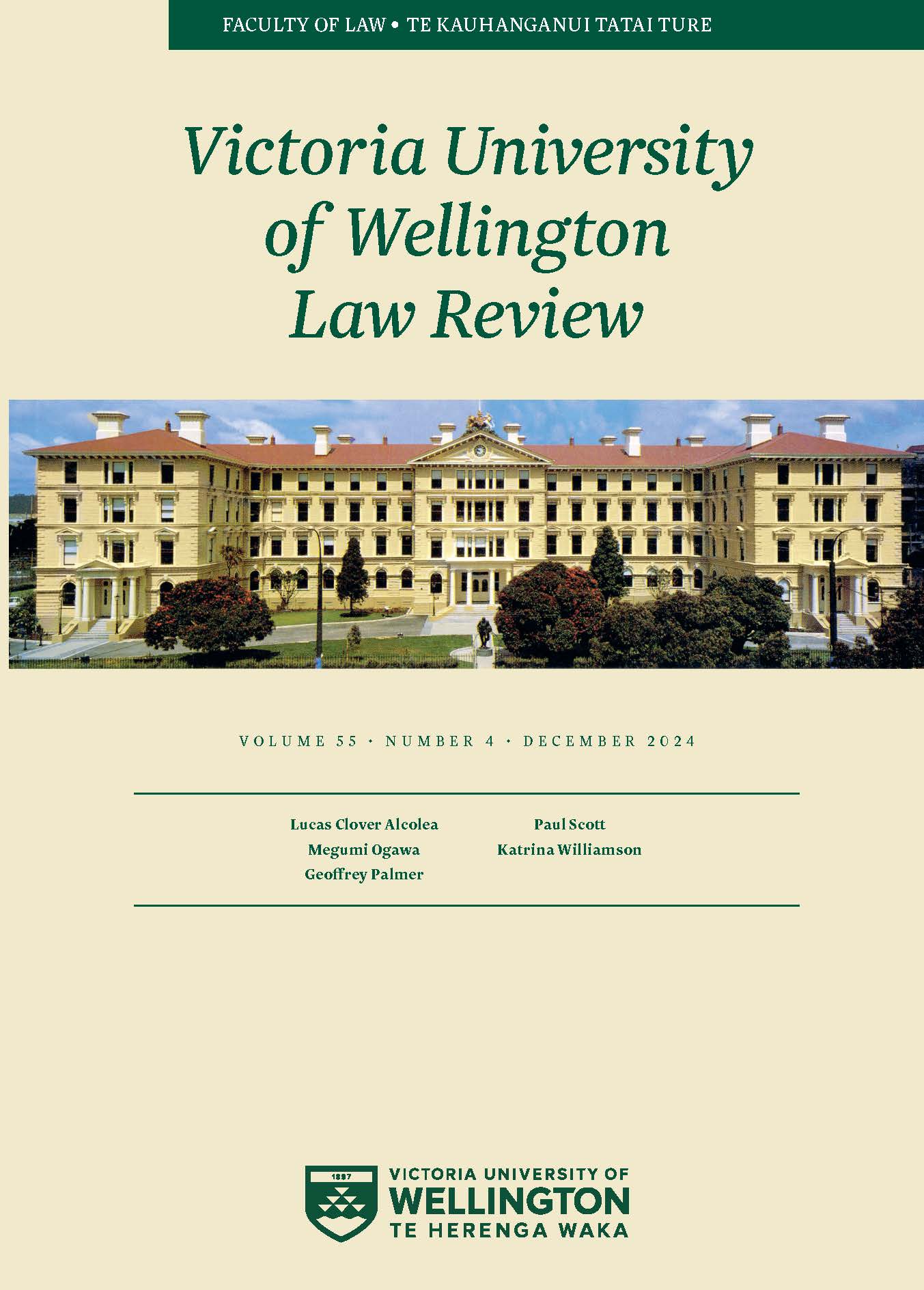United States v Google LLC: An Analysis under Section 36 of the Commerce Act 1986
DOI:
https://doi.org/10.26686/vuwlr.v55i4.9871Abstract
Monopolisation cases have become prevalent – at least in the United States where the Federal Government has sued a number of tech companies. A United States District Court found Google liable for exclusive dealing in the first of these cases. In 2020, New Zealand amended its monopolisation provision, s 36 of the Commerce Act 1986. It introduced a substantial lessening of competition test, meaning that a monopolist would be liable under s 36 if its conduct had the purpose, effect or likely effect of substantially lessening competition. The Government did so because it believed the old section did not capture much anticompetitive conduct. It gave exclusive dealing as an example of such conduct.
This article examines how a New Zealand court would decide the Google case under the old and new s 36. The United States decision is a useful comparison as United States monopolisation law requires a plaintiff to show the conduct had an anticompetitive effect. The article argues a New Zealand court would not find Google liable under the old s 36 but that it is unknown what it would do under the new s 36. The reason is that although New Zealand law requires courts to identify a counterfactual in the sense of identifying what would happen in the market without the challenged conduct, United States law does not. This means there is no evidence on the issue, making predictions difficult. However, the article argues that the new s 36 improves New Zealand's monopolisation law.
Downloads
Downloads
Published
How to Cite
Issue
Section
License
Authors retain copyright in their work published in the Victoria University of Wellington Law Review.


